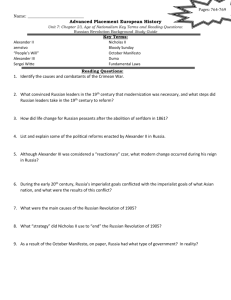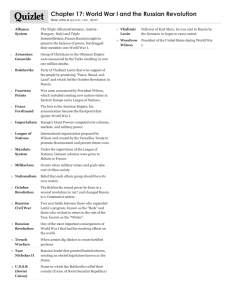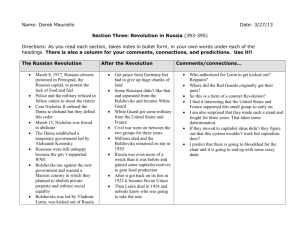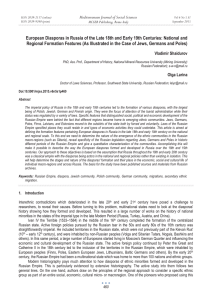ap world history - Fort Thomas Independent Schools
advertisement
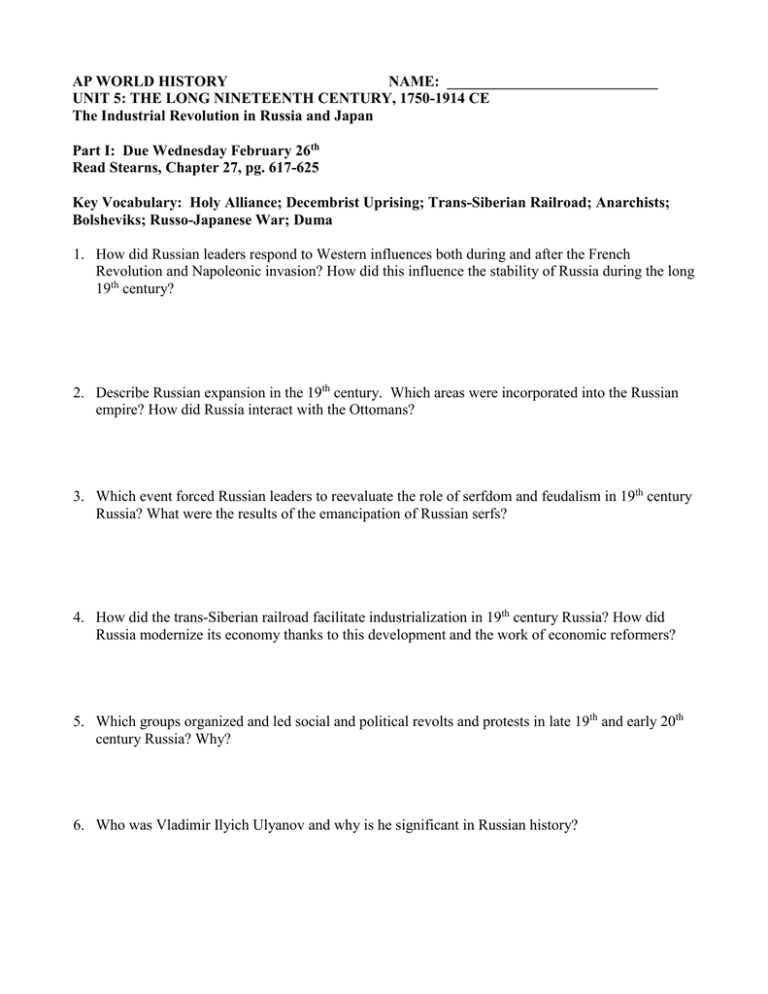
AP WORLD HISTORY NAME: ____________________________ UNIT 5: THE LONG NINETEENTH CENTURY, 1750-1914 CE The Industrial Revolution in Russia and Japan Part I: Due Wednesday February 26th Read Stearns, Chapter 27, pg. 617-625 Key Vocabulary: Holy Alliance; Decembrist Uprising; Trans-Siberian Railroad; Anarchists; Bolsheviks; Russo-Japanese War; Duma 1. How did Russian leaders respond to Western influences both during and after the French Revolution and Napoleonic invasion? How did this influence the stability of Russia during the long 19th century? 2. Describe Russian expansion in the 19th century. Which areas were incorporated into the Russian empire? How did Russia interact with the Ottomans? 3. Which event forced Russian leaders to reevaluate the role of serfdom and feudalism in 19th century Russia? What were the results of the emancipation of Russian serfs? 4. How did the trans-Siberian railroad facilitate industrialization in 19th century Russia? How did Russia modernize its economy thanks to this development and the work of economic reformers? 5. Which groups organized and led social and political revolts and protests in late 19th and early 20th century Russia? Why? 6. Who was Vladimir Ilyich Ulyanov and why is he significant in Russian history? 7. Who were the Bolsheviks? 8. What were the causes and consequences of the Russian Revolution of 1905? 9. What was the relationship like between Russia and Eastern Europe in this time period? Part II: Due Thursday, February 27th Read Chapter 27, pg. 625-633 Key Vocabulary: Matthew Perry; Sino-Japanese War 1. Describe the state of Tokugawa Japan through the mid-19th century. 2. Who was Commodore Matthew Perry? Why is he significant in Japanese history? How did he contribute to the challenge to Japanese isolationism? 3. What were some of the major reforms and actions of the Meiji government that followed the collapse of the Tokugawa Shogunate? 4. What were the major characteristics of the Japanese industrial revolution? How does it compare to the industrial revolutions of the West? 5. What were the major consequences of industrializations in 19th century Japan? 6. What problems did Japan face during its attempt to promote modernization? 7. How did the Age of Revolutions (or the long 19th century) promote globalization? Which aspects of society (political, social, cultural, etc) were impacted by this new trend of globalization and how? Compare & Contrast: How did the process of industrialization differ in Japan and Russia compared to Britain, or Western Europe?
